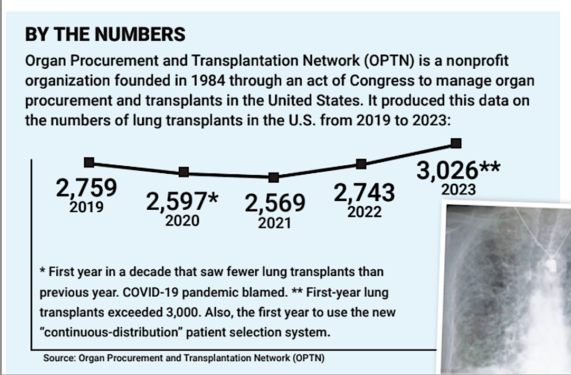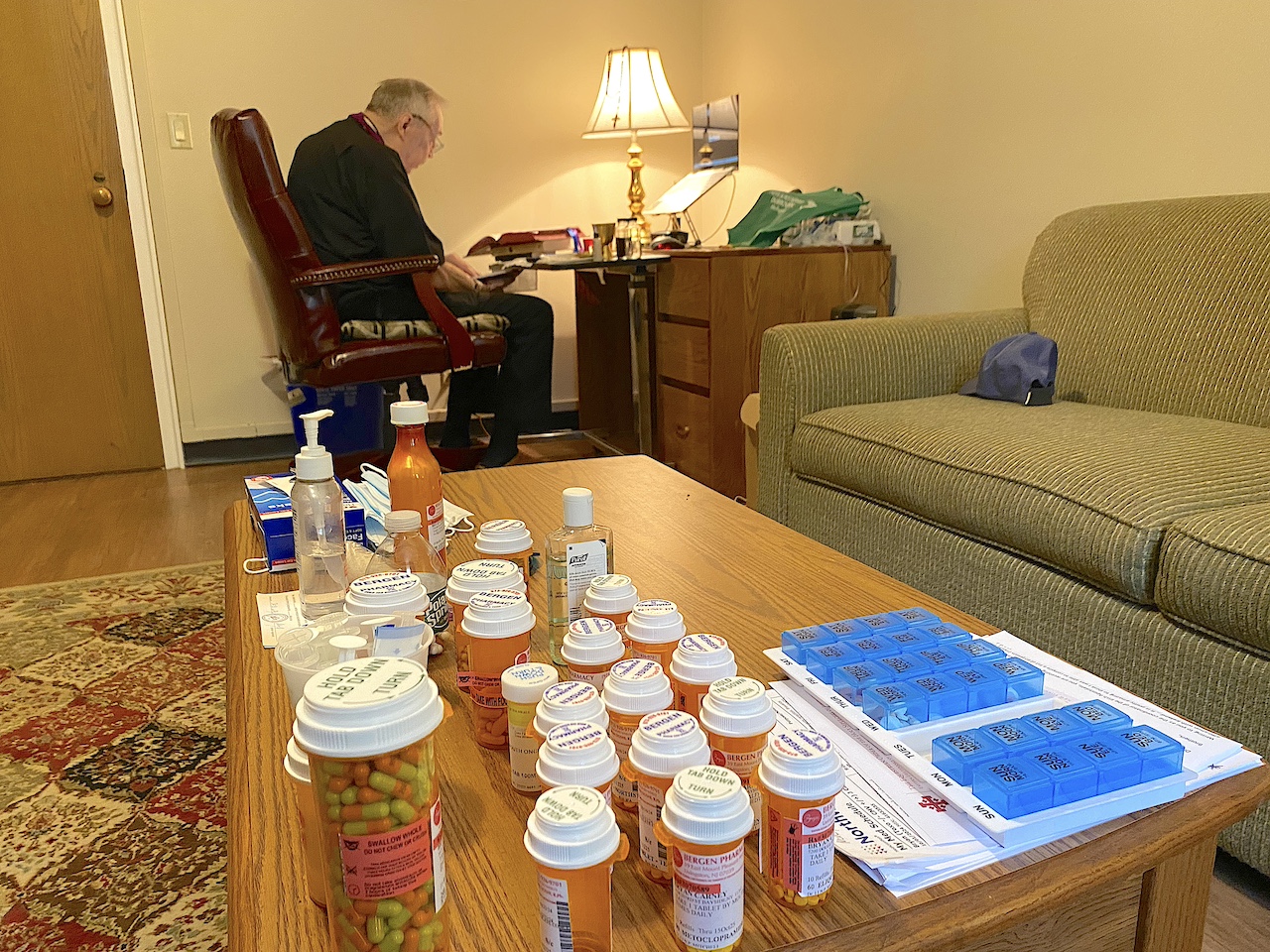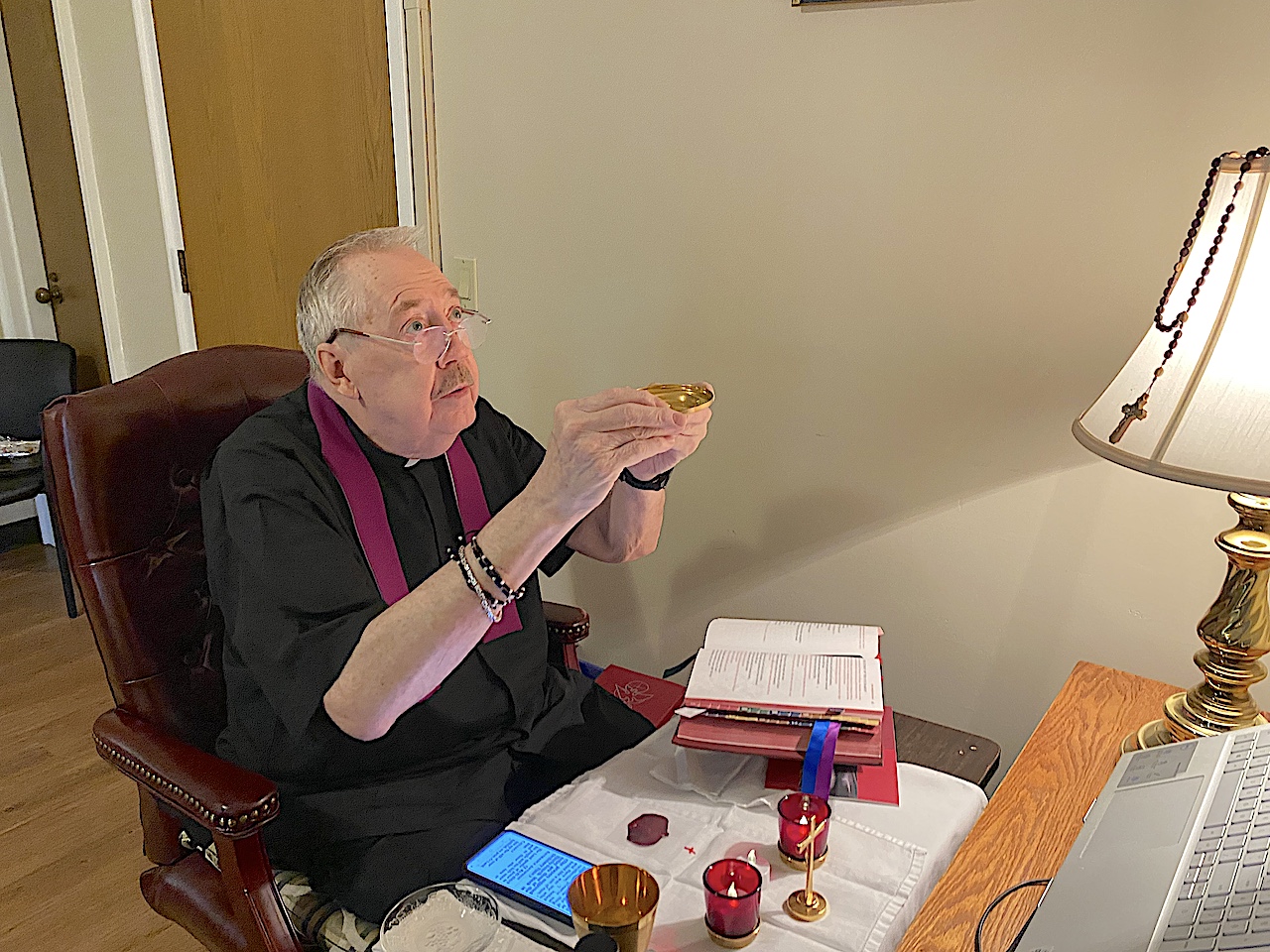
DOUGLASTON — As a hospital chaplain, Father Bryan Carney regularly encountered death while giving last rites, but just two months ago, his own mortality loomed.
Father Carney, who ministers at Flushing Hospital Medical Center, had been on oxygen day and night for the last two years because of severe scarring on his lungs — a consequence of pulmonary fibrosis.
Doctors gave him no more than six months to a year left to live.
“I was critical,” Father Carney told The Tablet. “I had the disease for five years, and usually, by then, it takes over and kills you. My time was running out.”
Father Carney doesn’t know how he got pulmonary fibrosis. His best guess is it came from exposure to asbestos during his time as a steamfitter before entering the priesthood, or from the toxic dust that was prevalent atop the rubble of the World Trade Center after 9/11, where he served as an Air Force chaplain assistant. Or maybe it was a combination of both.
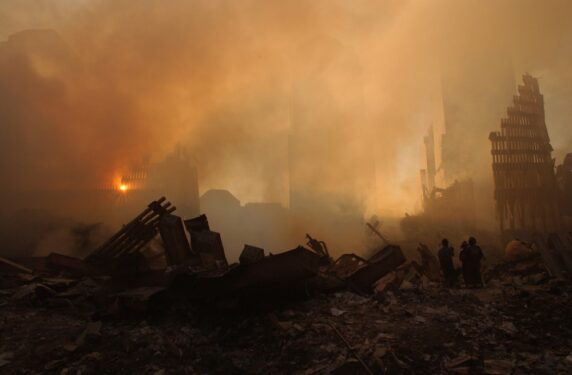
Regardless, Father Carney needed a lung transplant, and at age 76, he thought he wouldn’t qualify. But at about 10 p.m. on Sept. 30, he got a phone call from organ transplantation officials in Pennsylvania who said a donor lung was available if he could get to the hospital immediately. Father Carney did not hesitate.
“The only thing they told me was that a young man died suddenly,” Father Carney said. “He was a match for my size. I’m 6-4 and a half; I had to have somebody at least 6-foot-2 and also B-positive blood.”
He was prepped for surgery at North Shore University Hospital in Manhasset. After a 10-hour operation on Oct. 1, he had the lung.
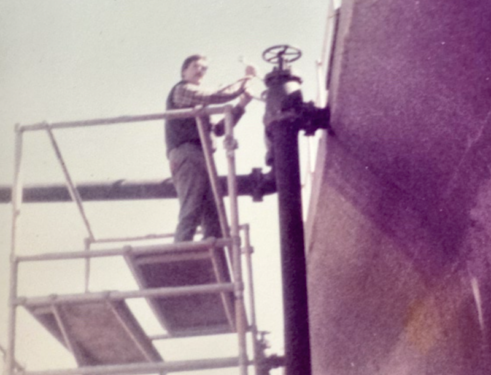
Youngblood
On Nov. 26, Father Carney was celebrating Mass in his temporary apartment in the Bishop Mugavero Residence at Immaculate Conception Center in Douglaston, where he is in rehabilitation, including physical exercise and lots of medication.
It’s a critical time because there is a chance that his body might reject the new organ, which he nicknamed “Youngblood.”
“My body wants to attack a foreign object, the lung, so the medication fools my body to accept it,” Father Carney explained. He said he hopes to leave Douglaston by early spring. Meanwhile, he’s optimistic — feeling strong and clear-minded.
He also ponders why he got a renewed chance to live at someone else’s expense.
“Somebody else is keeping me alive now,” he said. “I got a 24-year-old man’s lung in my body, and I ask, why did he have to go, and I got to stay?
“I’m just humbled.”
Real Fears
Father Carney’s fears of not qualifying for the transplantation weren’t unfounded.
Before 2023, the Organ Procurement and Transplantation Network (OPTN) used a selection process that put applicants in ordered groups, such as blood type, or within 250 nautical miles of the donor hospital. Next, within each group, candidates were preferentially ordered by Lung Allocation Score (LAS).
That changed in March 2023, when OPTN scrapped candidate groupings and adopted a “continuous-distribution” system. Here, candidates are prioritized with a composite allocation score (CAS) based on medical, biological, and other factors.
Officials at the United Network of Organ Sharing, which oversees OPTN, reported strong results.
“The lung continuous-distribution policy is a more equitable way of allocating deceased donor organs,” Anne Paschke, UNOS spokeswoman, told The Tablet. “An analysis comparing the year before the policy change to the year after the policy change showed that the transplant rate increased by 16% and waiting list mortality decreased by 29%.
Also, the revision caused a surge in lung transplants in 2023, which exceeded 3,000 (3,026 total) for the first time in the U.S., OPTN reported.
Queen of Peace
Father Carney said he didn’t know if the revised OPTN criteria helped him get a transplant. He just knows that in years past, two other hospitals rejected his request because of his age.
He is sure, however, that divine intervention was at work, specifically the intercessory prayers of “The Queen of Peace” — Mary, Mother of Jesus.
Since 1981, she reportedly has appeared regularly to a half-dozen “visionaries” at Medjugorje, a small town in Bosnia-Herzegovina. Father Carney has visited there 34 times. He credited his first visit for affirming his choice to become a priest in his late 50s.
See Related Article: Medjugorje A Pathway to Peace & Reflection for One Queens Chaplain
He has also guided pilgrims there from throughout the Diocese of Brooklyn and the United States. A dozen of them — now an extended family, he said — joined him on Nov. 26 for Mass via Zoom. Among them was Ivanka Petrovic, a Medjugorje tour guide.
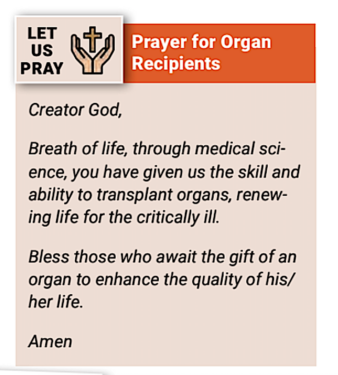
“So, I believe that Our Lady of Medjugorje worked,” Petrovic said.
Also on the call was Ann Baston, a nurse from Virginia who was amazed Father Carney received the lung so quickly.
“Honestly,” Baston said, “in the medical world, that is unheard of.”
Father Carney agreed.
“I actually think it’s a miracle,” he said. “It’s a gift. I tie all that into Medjugorje, and nobody’s going to convince me otherwise.”
Father Carney said the donor’s age is all he knows about him. Because of federal privacy laws, he said he can’t learn more unless the man’s family contacts him, which becomes an option after three months.
He said he hopes that they will.
“I’ll pray for their son the rest of my life because he gave me life,” Father Carney said. “I hope that makes them feel good — that I’ll be praying for their son.”
He said he also prayerfully seeks guidance on using “this extension” of life.
“I shouldn’t be here,” Father Carney noted. “But I’m taking it as unfinished business. So, I’m going to be a better person and see what God has in mind. I am open for anything.”


